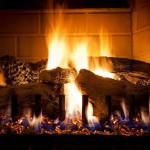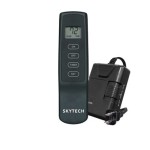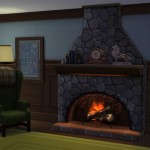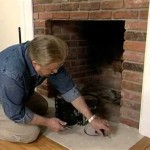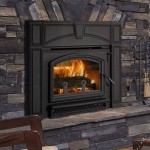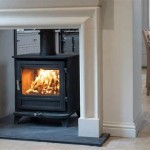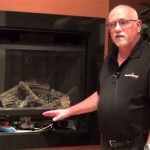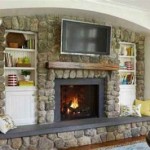Fireplace Insert Blower Installation: A Step-by-Step Guide
A fireplace insert blower is a valuable addition to any fireplace, significantly enhancing heating efficiency and comfort. These blowers circulate warm air from the firebox throughout the room, creating a more even distribution of heat and allowing you to enjoy the warmth even further away from the fireplace. Installing a fireplace insert blower is a relatively straightforward process, and with the right tools and instructions, you can do it yourself. This article will guide you through the steps of fireplace insert blower installation.
Safety First
Before starting any installation, it's paramount to prioritize safety. Always consult the manufacturer's instructions for your specific blower model and fireplace insert. They will provide detailed information and safety precautions tailored to your situation. Additionally, here are some general safety tips to keep in mind:
- Ensure the fireplace is cold before starting any work.
- Disconnect the power supply to the fireplace and blower.
- Wear appropriate safety gear, including gloves and safety glasses.
- If you are unsure about any step, consult a qualified professional.
Step-by-Step Installation Guide
Now that safety is addressed, let's proceed to the installation process:
1. Choosing the Right Blower
The first step is selecting the appropriate blower for your fireplace insert. Consider factors like the size of your room, the type of insert you have, and the desired heating capacity. Measure the dimensions of your insert's firebox to ensure the blower fits properly. When choosing a blower, pay attention to its airflow capacity and noise level.
2. Preparing the Fireplace
Before installing the blower, clean the fireplace insert thoroughly to remove any debris or dust. This ensures optimal airflow and prevents obstructions. Remove the firebox grate, and if necessary, detach the existing blower if one is already installed.
3. Installing the Blower
The installation process may vary slightly depending on the blower model, so consult the manufacturer's instructions for precise guidance. Here are general steps:
- Secure the blower motor: Position the blower motor in the firebox, usually at the back or bottom, and secure it using fasteners provided by the manufacturer.
- Connect the ductwork: Attach the blower's outlet duct to the blower motor, ensuring a secure connection. Route the ductwork through the fireplace and into the room. Secure the ductwork to the wall or ceiling as needed.
- Install the blower vent: Install the blower vent in the desired location in the room, ensuring proper ventilation and airflow. The vent should be placed where it won't be obstructed by furniture or other objects.
- Connect the power supply: Connect the blower to the power source using the provided wiring and plug.
4. Testing the Blower
Once the installation is complete, test the blower by turning it on and ensuring it operates correctly. Check for leaks or faulty connections. Observe the airflow and noise levels. If any issues arise, immediately turn off the blower and troubleshoot the problem before using it.
Important Considerations
Here are crucial points to keep in mind during blower installation:
1. Proper Ventilation
Ensure sufficient ventilation in the room to avoid carbon monoxide buildup. Proper ventilation is essential for safe and efficient operation of the blower. Ensure the vent is properly sealed and connected to the blower's outlet duct.
2. Clearance Requirements
Maintain adequate clearance between the blower and surrounding materials, as outlined in the manufacturer's instructions. This helps prevent overheating and potential fire hazards. Keep the area around the blower free of combustible materials.
3. Regular Maintenance
To ensure optimal performance and longevity, routinely clean the blower and ductwork. This involves removing dust and debris that can accumulate over time. Consult the manufacturer's instructions for specific cleaning procedures and frequency recommendations.
By following these steps and safety guidelines, you can successfully install a fireplace insert blower and enjoy the benefits of increased heat distribution and comfort. Remember, if you are uncertain about any step or have any concerns, consult a qualified professional for assistance.

Installing A Fireplace Blower Gfk4 Gfk4a In Heatilator Natural Gas

Why Should I Get A Fireplace Blower For My Masonry

Fireplace Blower Lower Your Home Heating Costs

Noisy Gas Fireplace Blower Here S How To Replace It Diy

How Is A Fireplace Blower Kit Wired Fireplaceblowers Com

How To Install A Fireplace Insert Diy Save Money

How Is A Fireplace Blower Kit Wired Fireplaceblowers Com

Fbk 250 Fireplace Blower Kit Installation

Fireplace Blower Fans What You Need For Heat Full Service Chimney

How To Replace Your Rsf Fireplace Blower Fan
Related Posts

